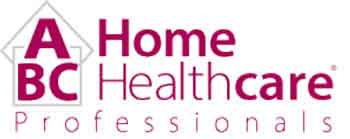“To enroll for Medicare, or not enroll for Medicare: that is the question”
…and while we have played on the Hamlet reference here, no, we are no William Shakespeare! However, we ARE here to tell you the basics about Medicare so that you can feel informed when it comes to making this important decision.
What is Medicare?
Medicare is a federal health insurance program for eligible US citizens and legal residents aged 65 or older and even available for some younger people with disabilities or conditions like End-Stage Renal Disease, Lou Gherig’s Disease/ALS etc. Medicare is not private insurance and it is an individual plan- it does not cover your spouse or dependents. Since each person is different and have different needs, it is important to note that even if your spouse or partner is already on Medicare and has a specific plan or will be enrolling for Medicare, the other spouse or partner DOES NOT need to have the same plan.
Many people ask “Is Medicare mandatory?” The answer is no. No part of Medicare is mandatory, but if you choose to enroll in any part of Medicare after your Initial Enrollment Period, you could face financial penalties unless you qualify for a Special Enrollment Period with creditable employer coverage.
There is so much to learn about Medicare and Medicare Advantage Plans but the “skinny” is the following:
Knowing the Different “Parts” of Medicare
Medicare is broken into four parts: Part A, Part B, Part C & Part D.
Part A – Hospital & Inpatient Care
Covers all care and prescription drugs you receive in the hospital- especially operating room and recovery room services. Skilled nursing services (nursing homes) and rehabilitation stays after a qualified inpatient stay are also included.
Part B – Doctor Visits & Outpatient Care
Includes annual wellness visits and preventative services as well as diagnostic lab tests, x-rays as well as physical therapy (PT)/occupational therapy (OT)/speech-language pathology services. It also provides coverage for ambulatory services and emergency room visits as well as some other health counseling programs for smoking cessation, weight management and mental health services just to name a few.
Part C – Medicare Advantage Plan
A combination of Parts A & B in one plan that usually includes Part D and may offer additional benefits like vision, hearing and dental coverage as well as some gym memberships.
Part D – Prescription Drug Coverage
Helps pay for prescription drugs and some specialty medications.
Generally, you only need to sign up for Original Medicare (consisting of Parts A & B) and it automatically renews each year unless you make changes. However, you’re able to customize your coverage, you can choose to have Original Medicare or Part C – Medicare Advantage Plan- and choose to add on Part D – Prescription Drug Coverage- if this is something you need or something that would be beneficial to you. There is also a Medicare Supplemental Insurance option, also referred to as Medigap, which helps pay some or all of the out-of-pocket costs that come with Original Medicare.
The “Advantage” of a Medicare Advantage Plan
You must have Part A & Part B to join a Medicare Advantage Plan but the advantage in enrolling in a Medicare Advantage Plan is that you get extra benefits that Original Medicare doesn’t cover such as vision, hearing and dental services.
As per the National Council on Aging, the key advantages of Medicare Advantage Plans boil down to the “three C’s”- cost, coverage and convenience.
Cost
Medicare Advantage Plans place a cap on your out-of-pocket costs for the plan coverage year whereas Original Medicare does not.
Coverage
As stated, you get additional benefits with a Medicare Advantage Plan so you receive more personalized health care coverage that’s tailored to your specific needs.
Convenience
Medicare Advantage Plans allow you to combine your medical and prescription drug coverage into one convenient health insurance plan- so you don’t have to purchase a separate Part D plan and pay a separate premium on top of your Original Medicare premium.
Who Can Enroll and How Do You Enroll?
To qualify for Medicare, you must meet the following eligibility criteria:
- Age 65 or older
- Younger than 65 with a qualifying disability
- Eligibility begins after 24 months of receiving Social Security disability benefits
- Any age with a diagnosis of End-Stage Renal Disease or Lou Gherig’s Disease/ALS
If you are eligible for Medicare, you will want to pay close attention to when and how to enroll. For those who become eligible due to age, the time to enroll includes your 65th birthday month PLUS the 3 months BEFORE and 3 months AFTER your birthday month.
There is also something called the Medicare Open Enrollment Period (also referred to as the Annual Enrollment Period) that runs from October 15th through December 7th of each year. During this time, people can enroll for Medicare or make changes in their existing coverage.
If the first open enrollment period passes you by, there is another window of opportunity in the new year between January 1st and March 31st but certain criteria and penalties could apply. For more information, you would need to speak to a qualified Medicare agent.
Good news is that, once you decide how you want to structure your Medicare Plan (opt for Original Medicare or a Medicare Advantage Plan), you can sign up easily online. You can find more information on how to apply online. In addition, if you are working with a qualified Medicare agent, they can guide you through the process from start to finish as well!
Sources for information:
